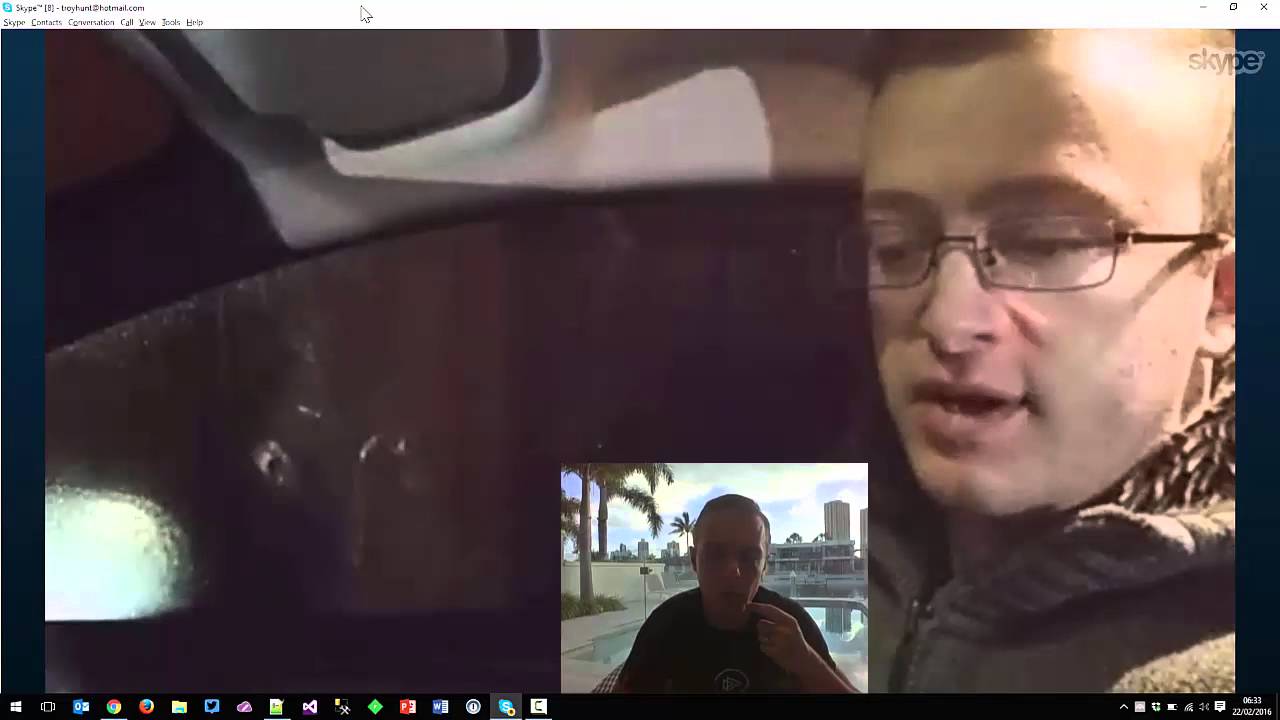Page 11647
Feb 25, 2016
Zoltan: The transhumanist for President — The Feed
Posted by Zoltan Istvan in categories: electronics, geopolitics, transhumanism

A new 9 minute video on transhumanism and my campaign from The Feed at SBS, one of Australia’s major tv channels. It aired today:
Meet the US Presidential candidate who not only wants to beat Hillary Clinton and Donald Trump, but — also — death.
Continue reading “Zoltan: The transhumanist for President — The Feed” »
How our brains view beauty is also from heredity.
British neurobiologist Semir Zeki says human brains work alike and we have a shared inheritance in the way we perceive beauty Who do you think is beautiful? Apparently all our votes would more or less go to the same person. Wherever we are from in the world, man or woman, Indian or South American, the way we experience beauty is pretty much the same. Because our brains work similarly, and as humans, we have a shared inheritance. Listening to British neurobiologist Semir Zeki is sure to leave one mesmerised about our understanding of the way our brains work.
Zeki, a frontrunner in the fairly nascent field of neuro-aesthetics, was in Bengaluru recently for the British Council’s lecture series “Science and Beyond”. A professor of neuro-aesthetics at the University College London, Zeki specialises in studying the primate visual brain, neural correlates of the experience of love, desire, beauty, within the field of neuro-aesthetics. In his award-winning study conducted across people of various races and cultures, the question he addressed was ‘What are the neural mechanisms that are engaged when you experience beauty?’. “I have not asked anything about the concept of beauty, the nature of beauty or anything like that. All I can tell you is that when you experience beauty, regardless of the source – whether it is visual, musical or mathematical, its correlated activity is in the same part of the brain.
Feb 24, 2016
Baltimore hackers say they reveal potentially deadly cybersecurity weaknesses at area hospitals
Posted by Karen Hurst in categories: biotech/medical, cybercrime/malcode
What happens when a patient is in X-Ray and the X-Ray machine blows up like a bomb killing the patient and staff in the room? Well, a new report shows that it can happen where machines are connected to any network (including the net) because a team of hackers showed in their report how they were they hacked several D.C. and Maryland Hospitals medical devices and numerous machines including life support, X-Rays, etc.
Area hospitals are riddled with cybersecurity flaws that could allow attackers to hack into medical devices and kill patients, a team of Baltimore-based researchers has concluded after a two-year investigation.
Hackers at Independent Security Evaluators say they broke into one hospital’s systems remotely to take control of several patient monitors, which would let an attacker disable alarms or display false information.
Feb 24, 2016
This smartphone’s display is also a solar charger
Posted by Shailesh Prasad in categories: mobile phones, solar power, sustainability
You phone does all kinds of things when it’s just lying there: checking your Facebook feed, pulling down Google Now updates, receiving emails and text messages. One thing it’s not doing: giving your battery a break.
Kyocera is working to change that. How? By sandwiching a solar panel to a smartphone display. It’s something they’ve been working on in conjunction with Sunpartner Technologies. They actually showed off their progress last year at Mobile World Congress, and they returned this year to give the crowd a glimpse at their updated prototype.
It’s an Android device with a five-inch screen, and like some of Kyocera’s other phones it’s waterproof and quite rugged. Curious how the solar layer affects the phone’s display? Reports from people that have spent time with the device say that you’d be hard pressed to notice the difference. That’s because the .55mm panel that Kyocera has integrated into their latest prototype’s display is 85% transmissive.
Continue reading “This smartphone’s display is also a solar charger” »
Feb 24, 2016
Cybersecurity Expert Finds Nissan Leaf Susceptible to Hacking
Posted by Karen Hurst in categories: cybercrime/malcode, health

One of the many reasons why hacking is a dangerous to our health. If a hacker can hack your Leaf and control heat/ air, collect data on your trips, they can also shutdown your engine abruptly on the road too.
Nissan’s Leaf may be hackable.
Continue reading “Cybersecurity Expert Finds Nissan Leaf Susceptible to Hacking” »
Feb 24, 2016
When Malware Becomes a Service, Anyone Can Be a Hacker
Posted by Karen Hurst in categories: business, cybercrime/malcode
A very bad and at times dangerous trend:
Hackers for hire; very lucrative new consulting business for out of work tech specialists.
As hackers switch to malware-as-a-service model to make their malicious tools and services available to general public, security firms struggle to find a way to catch the bad guys.
Continue reading “When Malware Becomes a Service, Anyone Can Be a Hacker” »
Feb 24, 2016
Are these the most dangerous baby-faced hackers in the UK?
Posted by Karen Hurst in category: cybercrime/malcode
Key UK Hackers profiled like rock stars.
CYBER villains have got Brit cops right where they want them.
Feb 24, 2016
Whoops! 12 Tales Of Accidental Brilliance In Science
Posted by Karen Hurst in category: science

You nominated 300 cool stories of scientific surprise for Skunk Bear’s Golden Mole Award. Our shortlist has it all: circuits painted with light, imperceptible genitalia, and a terrifying frog.
Feb 24, 2016
5 Ways Brain-Computer Interfaces Could Change The World — And Us
Posted by Karen Hurst in categories: biotech/medical, computing, cyborgs, neuroscience
Current experiments with brain-computer interfaces have allowed an amputee to “feel” with his prosthetic hand — what other wonders will we achieve with this technology?















